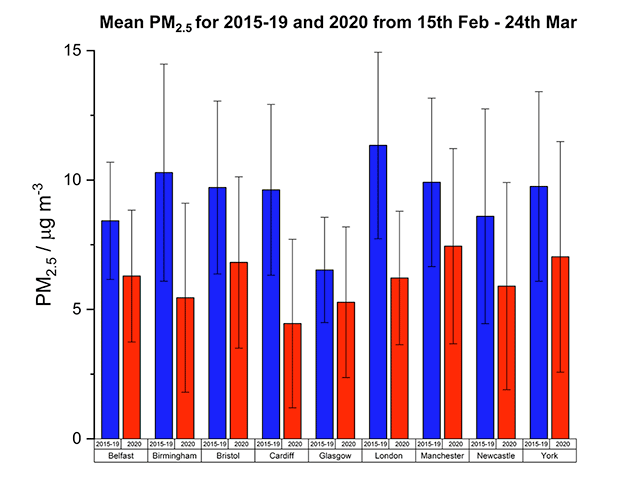Air pollution has long been one of the most severe forms of environmental damage. When the figures announced by the World Health Organization (WHO) are examined, it shows that air pollution kills seven million people worldwide every year. But with the pandemic, this situation seems to have changed a little.
According to the International Energy Agency, the average activity on the world's roads has decreased by almost 50% compared to 2019. This, in turn, leads to a slight improvement in air quality. In fact, people in India recently shared images of a clear, clear sky on social media after nearly 90% of road trips were halted due to quarantine. Another report was published by the UK's National Center for Atmospheric Science. According to the data collected by the centre, there appear to be significant reductions in nitrogen dioxide (NO2) and particulate matter (PM2.5) in 10 cities:

The sharp decline in transportation and industry due to lockdown has also caused a significant drop in carbon emissions. The World Meteorological Organization (WMO) said the global response to the Covid-19 crisis had little effect on the continued rise in atmospheric CO2 concentrations. While this may seem promising, data from the WMO showed that it only slowed the overall increase in concentrations for a short period of time.
Unfortunately for now, despite calls for a greener mindset, it seems as if the priority has been business as usual, regardless of cost.


